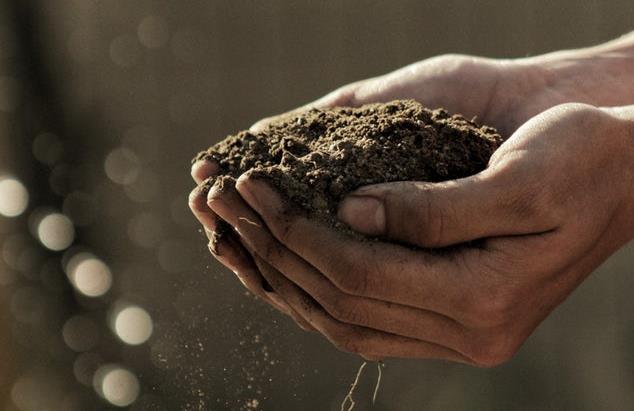Contagious Holiness

As I was reading Grace and Peace, the interview, "So Beautiful," with Leonard Sweet, caught my attention. This segment spoke to my heart: "If you were a leper, you didn't get close to anybody. You wore a sign that said you were impure. If you were a good Jew, you didn't get close to sinners, you separated from them. Jesus came on the scene and flipped it, totally flipped it." Sweet went on to say, "Jesus got his hands dirty. The question is, 'Can Christians get their hands dirty?" [Grace and Peace, Summer 2010]
The article focused on engaging our community if we are going to impact people for Christ. What I read took me on an introspective journey about what holiness really looks like.
Being raised in the Church of the Nazarene, I clung to the rules of the church as a lightning rod against doing anything that my friends would try to talk me into. Going to movies - the church says I can't do that. Going to the roller rink - the church says "no dancing" so I can't go there. For years, my family did not own a television, subscribe to the Sunday paper, go out to eat on Sunday, nor go to any place of business on Sunday. You get the idea.
Surprisingly enough, that thinking followed me to college and even into my early years as a pastor. I could not connect with the worldly stuff because of its possible influence. I was truly and unequivocally a follower of the Church and its rules. As a result, I remained in my "holiness bubble" and used the rules as my reason to never involve myself in the culture that so desperately needed to be introduced to the One who changed my life. If anyone wanted to experience or witness that change, they needed to come into the church and see how I worshiped the Lord and how many times I attended services each week.
It was not until my daughter went to a secular university, on a swimming scholarship, that I learned something different. She'd been raised in our home and knew our "holiness" ways. My fear of a secular influence on her was very great as we dropped her off.
But I remember her hearing a message and relating to me that a Christian student must become an infection in a secular world--not simply wearing the T-shirts, carrying the Bible, and wearing religious emblems. Her challenge was to be Christ in a way that began to infect her world. An infection, in the medical sense, doesn't always show up right away, but it slowly makes itself known as it works its way through the body. One day it shows up and you know something has become sickened by that particular infection. Through four years of college and to this current day, that lifestyle-a holiness lifestyle-infected her and is affecting those around her.
With that illustration and the statement found in Grace and Peace, God gave me a series of sermons entitled, "Holiness Is a Dirty Word," reflecting on the fact that Jesus did not just talk to or pray for the leper, He actually touched the leper. Within that series I began to realize all of the events in the life of Jesus where He touched His world--publicans, sinners, adulterers, tax collectors, harvest fields, dirty feet--ultimately through His sacrifice on the Cross.
The Cross was true holiness in its purest form, but it didn't look very holy on the surface. In order to engage our world, Jesus showed us how to be holy people in a dirty world and to live a life of holiness without the world endangering our holiness label.
I learned that for years my life was defined by labels - holiness church and holiness people - instead of a holiness lifestyle that connects with my culture to show them who Christ is through me.
I didn't have to be disconnected from the culture, but God was calling me into the culture to truly live out His change in me. People in our communities are not likely to come into my holiness church to see my holiness life. But I now know they will see me every day giving them a tangible indication that there is something different in my life.
Holiness is a dirty word. If our world is truly engaged by holiness people instead of a holiness people waiting for the culture to come to the church, what a true difference it will make in His kingdom.
One final concept that continued to run through my mind in relation to engaging and impacting our community is that it all begins in the church. If we don't engage each other within the walls of the building then we will never be effective in engaging our community and culture. If we don't live that life with each other we will not have any effect in the world we are trying to reach.
My years of experience have shown me that even within the walls of the church, holiness can be a dirty word. It is needed within the Body that meets together as well as throughout every community.
Keven Wentworth is pastor of Dayton, Ohio, Beavercreek Church of the Nazarene.
Holiness Today, March/April 2011
Please note: This article was originally published in 2011. All facts, figures, and titles were accurate to the best of our knowledge at that time but may have since changed.




